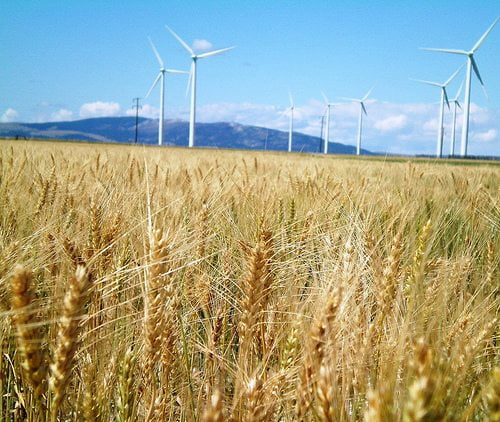

Energy
2030 climate and energy framework urgently needed, say 13 EU states
Thirteen European cabinet ministers for energy and climate change have spoken out about the need for a 2030 climate and energy framework. The ministers argue this will give investor confidence a boost.
The pamphlet, Going for Green Growth: The case for ambitious and immediate EU low carbon action, sets out the importance of long-term EU level policy for climate change.
UK energy secretary Ed Davey said, “Businesses and investors are telling us that the EU needs to get its act together and that we need to urgently agree a 2030 climate and energy framework and reform the EU Emissions Trading System (ETS). Only then will investors have the confidence to put the billions into low carbon that we need.”
The pamphlet warns that a lack of clarity over the post-2020 EU low carbon policy framework is creating a “cliff-edge” that is damaging investment.
Investors worth €7.5 trillion have welcomed the report and urged the EU to put policies in place which will give them the certainty they need to invest now.
Stephanie Pfeifer, chief executive of the Institutional Investors Group on Climate Change (IIGCC), which represents over 80 of Europe’s largest investors, said, “Investing in energy infrastructure is a complex, multi-decade commitment that needs to be backed by supportive, long-term policies.
“The EU must now move quickly to agree measures which will give investors confidence and get investment in low-carbon energy infrastructure going.”
Last month, a group of high-profile investors called on George Osborne to address the lack of a 2030 decarbonisation target in the energy bill. They argued that the lack of a target was discouraging investment in clean energy projects.
The Green Growth Group paper pointed out the whilst global clean energy investment has grown six-fold since 2004, to nearly $270 billion, the EU share is down from 40% in 2009 to just 25% in 2012.
The pamphlet said, “To keep the lights on and stay on a cost-effective decarbonisation path, Europe must replace a fleet of old power stations with cleaner energy, and substantially upgrade its infrastructure.”
This is estimated to require Europe-wide investments of €1 trillion by 2020, €2.5 trillion by 2025 and up to €7 trillion by 2050. This would mean energy investment must increase by 30% for gas and 70% for electricity, with the vast majority of this investment coming from the private sector.
The pamphlet concluded that the EU must agree an “ambitious” EU 2030 framework and reform the structure of the EU’s ETS. It also adds that the EU must ensure it is in a position to put an ambitious emissions reduction offer on the table at the Ban Ki-moon Climate Summit in autumn 2014.
Davey added, “The consequences of inaction are clear. The stakes are high, if we do not act, we could all lose out in the low-carbon race.”
Further reading:
Investors say climate change risks are being ‘undervalued’ in energy stocks
‘Sceptical’ politicians and financial crisis both factors in UK climate lethargy
Investors ask George Osborne for clearer renewable energy policy
Stuttering investment is putting EU renewables targets at risk


 Features11 months ago
Features11 months agoEco-Friendly Cryptocurrencies: Sustainable Investment Choices

 Energy11 months ago
Energy11 months agoThe Growing Role of Solar Panels in Ireland’s Energy Future

 Energy10 months ago
Energy10 months agoGrowth of Solar Power in Dublin: A Sustainable Revolution

 Energy10 months ago
Energy10 months agoRenewable Energy Adoption Can Combat Climate Change


























